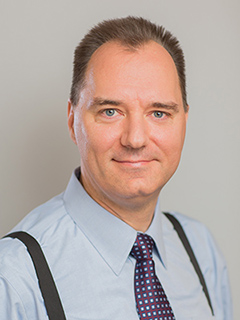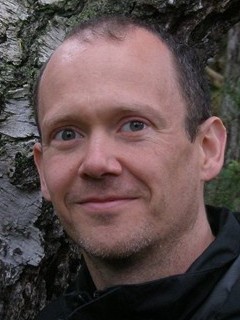ERC Consolidator Grants to two KTH researchers
Recently, the European Research Council (ERC) published the results of the 2017 call for proposals for ERC Consolidator Grants. Of the total of 14 Swedish researchers who received grants, two are from KTH Royal Institute of Technology: Dejan Kostic, Professor of Internetworking and Per Högselius, Associate Professor in the field of the History of Science, Technology and Environment.
Dejan Kostic´s ULTRA project will receive almost 20 million Swedish crowns over five years.

“It’s every researcher’s dream: having enough funding to pursue a high-risk idea that can have a large impact. I’m at the point in my career where I would really like to have some strong impact and thus again the timing is perfect,” he says.
Within the ULTRA project, he and his research group will build internet services with ultra-low latency. The goal of this project is to make the Internet services work at the true speed of the underlying hardware. The services built by ULTRA will be an enabler for emerging applications such as intelligent transportation systems, the Internet of Things and e-health.
“We routinely rely on the Internet and the services implemented in the so-called cloud. Unfortunately the existing cloud infrastructure is unsuitable for time-critical societal applications, and surprisingly enough using networks with ample bandwidth does not guarantee low latency,” says Dejan Kostic.
He previously received the ERC Starting Grant, thus being the first KTH researcher to receive an ERC Grant twice.
“I cannot thank the ERC enough for believing in me once again. I'm very happy at KTH and in Stockholm, and this grant thus comes at a perfect time. I'm grateful to my past and current doctoral students, postdocs, and collaborators for their hard work and inspiration, and I plan to build an even bigger group,” says Dejan Kostic.
Per Högselius’ Nuclear waters project, which is about the history of nuclear power from a global perspective, will also receive almost 20 million Swedish crowns over five years. At least 6 researchers will work on the project.

“This feels amazing. It means that I finally get the opportunity to realise a real dream project on the global history of nuclear power. The project concept is probably far too radical for any organisation other than the ERC to have dared to fund it. The grant is significant for both myself and for research into technological history at KTH. This is the second year in a row that the Division of History of Science, Technology and Environment at KTH has received an ERC grant (Peder Robert at the School of Architecture and the Built Environment received the ERC Starting Grant in 2016), and it shows once again that our division is among KTH’s strongest research environments,” says Per Högselius.
What is special about the project is that research will not be about the actual nuclear reactors, but instead concern the water systems of nuclear power plants and their extreme dependency on colossal and, above all, constant, water flows. This has been completely neglected in previous historical research, according to Per Högselius.
“Seen from a water perspective, nuclear power is by no means a unique technology historically. The hypothesis is that, on the contrary, nuclear power is based on millennia of technological progress in water use – including everything from methods to handle drought in ancient Mesopotamia to wet rice fields in East Asia and the Netherlands’ multi-centenary struggle against the sea. The project will thus radically reinterpret how nuclear power ‘fits into’ world history. We will get to the bottom of these historical roots and examine how nuclear engineers have built on the inventions and discoveries of ancient water engineers. Through this, I think we’ll also gain an understanding of the logic behind many apparently hard-to-explain incidents and accidents relating to nuclear power,” he says.
KTH is matching these ERC Consolidator Grants with SEK 4 million for each project.
In total 329 top European researchers were able to share the EUR 630 million distributed within the ERC Consolidator Grant 2017 scheme . The grants are part of the research and innovation funding programme Horizon 2020. The ERC Consolidator Grant is for researchers who have recently put together a research team and want to boost their role as research director (7–12 years after receiving their doctorate). Applicants should have potential to become world-leading in their area. The size of the grant is up to EUR 2 million over a maximum period of five years.
Håkan Soold